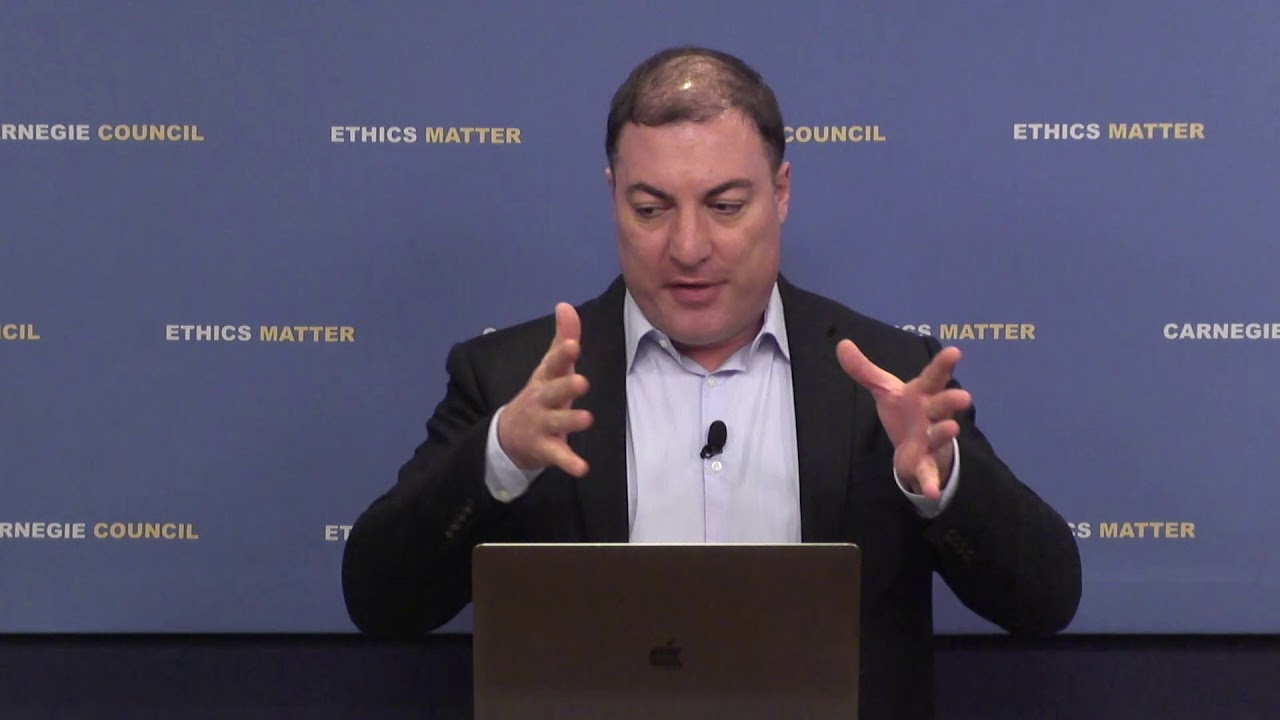
Land of Hope: An Introduction to the Great American Story, Wilfred M. McClay; Encounter Books, 2019, 504 pages
Wilfred McClay makes clear the “principal objective” of his book. “It means,” he writes,
to offer to American readers, young and old alike, an accurate, responsible, coherent, persuasive, and inspiring narrative account of their own country—an account that will inform and deepen their sense of the land they inhabit and equip them for the privilege and responsibilities of citizenship. “Citizenship”... means an enduring sense of one’s full membership in one of the greatest enterprises in human history: the astonishing, perilous, and immensely consequential story of one’s own country.
Fittingly with this goal, McClay holds an endowed chair in the history of liberty at the University of Oklahoma.
A tension in McClay’s goal is apparent. He aims to provide an accurate account of American history, but is this consistent with aiming to persuade students of America’s unique status in the world? In brief, is McClay writing objective history or edifying propaganda?
"[M]cClay’s devotion to his version of nationalism sometimes hinders accuracy."
His defense against this challenge is equally apparent. Is it not desirable that young Americans, in these days of contempt for patriotism, think well of America? If, as McClay says, “nothing about America better defines its distinctive character than the ubiquity of hope,” should not students learn about our country from this perspective?
This defense does not speak adequately to the charge. Certainly we can use the results of historical investigation to inculcate values, but to do so we must begin with accurate history. We cannot treat history as the equivalent of Aesop’s Fables, an invented collection of parables to be drawn upon at will. Did the events of history that McClay appeals to in the effort to teach “citizenship” happen as he says they did? That is a question unanswerable by appeal to the value of citizenship.
McClay has anticipated this criticism. He says:
Mindful of Herbert Butterfield’s insistence that the historian should strive to be a recording angel and not a hanging judge, I have tried my best to be guided by that dictum. But while trying to be objective, I have not claimed to be neutral in all respects. . . I cannot pretend to be neutral when the larger cause of America and American history is involved.
This is a reasonable response, and often McClay is able to present with understanding points of view he rejects. The student who reads this book will learn how a thoughtful historian views his discipline. From my libertarian perspective, McClay views the state, “that coldest of all cold monsters,” with altogether too much sympathy, especially in his support for America’s wars. But the criticism I wish to press against him is not that his values have the misfortunate of failing to coincide with my own.
Rather, my criticism is that McClay’s devotion to his version of nationalism sometimes hinders accuracy. One example occurs in his discussion of the Alien and Sedition Acts. McClay criticizes the Alien and Sedition Acts for their restrictions of free speech, but his belief in a strong central government leads him to present the controversy about these laws in a misleading way. “In angry response,” he writes,
Jefferson and Madison drafted the Kentucky and Virginia Resolutions, which denied the Alien and Sedition Acts, and declared that because the Constitution was a “compact” among previously existing states, the individual states had the right to interpose themselves against, or to nullify outright, unconstitutional acts of the national government. Such propositions were every bit as dangerous as the Alien and Sedition Acts, for if implemented they would have the effect of undermining the nation’s entire constitutional structure... Washington was appalled by them.
McClay is entitled to his belief in a strong central government, but he fails to mention that the Virginia and Kentucky Resolutions were not an innovation of Jefferson and Madison. As the pioneering research of Kevin Gutzman has shown, the “compact theory” dominated debate at the Virginia Ratifying Convention. It was not a new idea, but an influential way of interpreting the Constitution and this fact McClay ought not to omit, however much he dislikes it. He fails to inform us that Washington supported the Sedition Act, a view that might bring into question Washington’s good judgment. He also wrongly takes Washington to be a universally admired figure in the period of the American Revolution and afterwards. Washington was indeed admired, but he had many critics as well. McClay notes that the Jay Treaty with Britain was “deeply unpopular,” but leaves out that many of its critics blamed Washington and excoriated him in no uncertain terms. Incidentally, McClay is mistaken that Washington’s Farewell Address was a speech “delivered on September 17, 1796. . . in Philadelphia,” as well as published later in newspapers. In fact, it was not delivered as a speech.
Again, my primary disagreement with McClay is his account of America’s wars, and here once more, the issue at stake is not his nationalist values per se, but the extent to which they lead to a misleading account of the facts. (I anticipate the response that I here rely on too sharp a separation between “values” and “facts.” This I reject. It is essential to the notion of scientific history that, even if facts are “theory impregnated,” one can arrive at facts not determined by personal values.)
In his account of America’s entry into World War I, McClay says that Wilson’s policy
of neutrality toward all belligerent parties would founder in the end. . .The United States wanted to be able to trade with all parties, relying on the principle of “freedom of the seas” to protect its shipping. But such a policy had the effect of denying the British the full benefit of their superior naval power and would thereby in effect favor the Germans. The British could never agree to that.
McClay does not tell his readers that the British blockade violated widely accepted principles of international law by banning shipments of food as “contraband of war.” John Bassett Moore, the foremost American authority on international law, had set forward the principle governing this topic in 1912. Wilson insisted on “strict accountability” for German violations of America’s rights as a neutral country, but protested only in the mildest terms against British violations. Moore’s student Edwin Borchard commented in his book, co-authored with William Lage, Neutrality for the United States,
This persistent refusal of President Wilson to see that there was a relation between the British irregularities and the German submarine warfare is probably the crux of the American involvement. The position taken is obviously unsustainable, for it is a neutral's duty to hold the scales even and to favor neither side.
So extreme was Wilson’s anti-German bias in his harsh note to Germany after the sinking of the Lusitania in 1915 that Secretary of State William Jennings Bryan resigned in protest. Bryan believed that a peaceful resolution of the dispute with Germany was possible, but Wilson preferred to tilt toward Britain. Even the mild protests to Britain that Wilson did allow through were derailed by Walter Hines Page, the American Ambassador to London and an ardent Anglophile.
Matters do not improve when we reach World War II. Says McClay,
Japan remained dependent on American oil. . . and when the Japanese occupied French Indochina in July 1941, Roosevelt retaliated by freezing Japanese assets in the United States and embargoing shipments of U.S. oil to Japan. This was a potentially debilitating move, because the Japanese had only very limited reserves, and it was a provocation that Japan was not likely to stand for. Secretary of State Cordell Hull was in contact with Japanese diplomats and sought some kind of solution, which would include a withdrawal from China, as a means of lifting the embargo and resuming American trade. But the Japanese leadership would not give up its dreams of empire...
McClay does not think it necessary to inform readers that America’s policy toward Japan has generated considerable historical controversy. Hull knew that his proposed “solution” was unacceptable to the Japanese. Why it was in the interests of the United States unconditionally to oppose Japanese expansion is not discussed. For all that McClay tells students, historians like Charles A. Beard and Charles C. Tansill might never have written a line on the topic.
Whatever differences one may have with McClay’s interpretations of American history, he obviously knows the subject thoroughly. The same cannot be said for his remarks on the history of Europe. Writing about the defeat of the Spanish Armada, he says, “From 1588, the star of England was in the ascendant and the star of Spain was in irretrievable decline.” In fact, the Anglo-Spanish War did not end until the Treaty of London in 1604, on terms very favorable to Spain.
McClay contrasts the British limited monarchy with Continental “absolutism”:
The monarchies of early modern France and Spain embraced absolutism, which meant greater and greater centralization of power in the hands of a single sovereign whose royal prerogatives were grounded in divine right. But the English followed a very different route, creating a system in which the ruler was limited by forces that divided and restrained his power. The Crown had to share power with aristocrats and gentry, who convened independently in a legislative body called the Parliament that. . .held the “power of the purse,” the ability to authorize taxes and control the crown’s access to public monies. The Crown did not control government on the local level...
In fact, the British state was much more efficient in collecting taxes and hence stronger than its Continental rivals, precisely because Parliament had the “power of the purse.” Money voted by Parliament was more likely to be collected. Further, the Continental governments did not control government at the local level. In France, for example, people would become aware of laws when they were read in church, and this gave the local clergy considerable leverage.
McClay also has some odd remarks about the Protestant Reformation. He says that “Luther was especially offended by the sale of indulgences as a way of financing the construction of St. Peter’s Basilica, the grand home church of the Pope in Rome.” Evidently the obvious point did not occur to him that if the Pope’s home church was “under construction,” the Pope did not then have a home church, an unlikely circumstance. Besides, the Pope’s home church is Saint John Lateran. McClay tells us that “Calvin strongly emphasized the doctrine of predestination,” but omits to tell his readers that the doctrine is also found in Augustine and Aquinas. He says that Henry VIII “never managed to obtain the male heir he sought.” What happened to Edward VI?
It is a sign of our corrupt times that this text is far better than its rivals. And from that standpoint, I highly recommend it.

